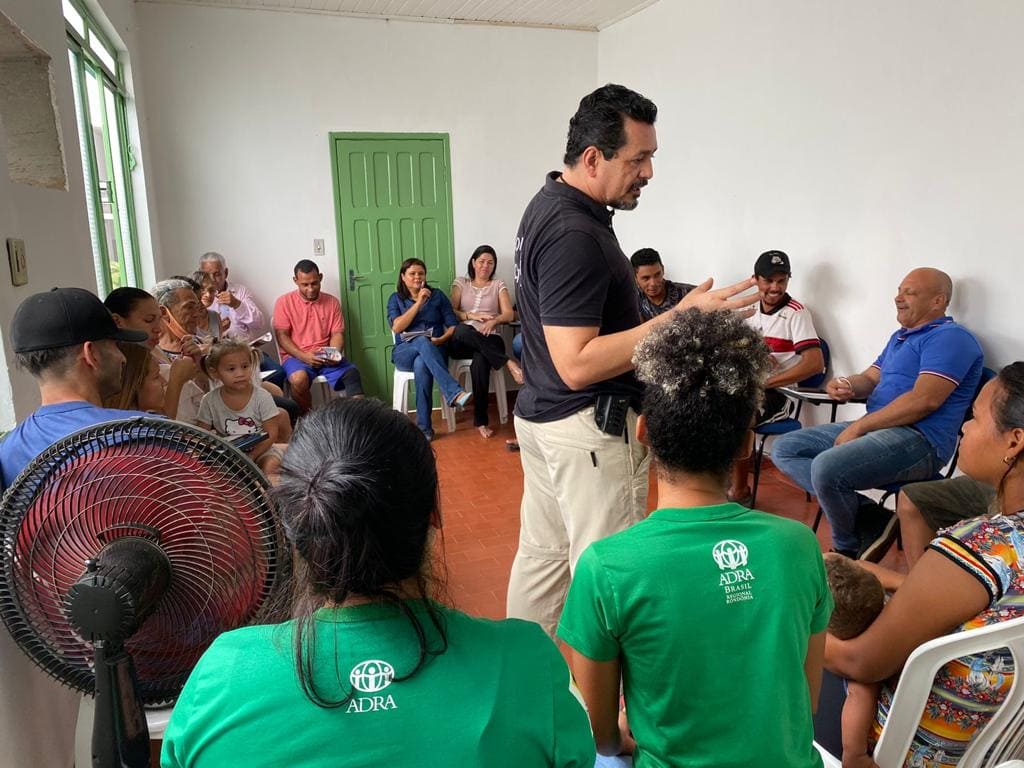
Orlando* is 41 years old and a professional cook. Due to the difficulties in Venezuela, he had to leave his country to search for a better life. “It wasn’t an easy decision. It’s just me and my wife. We had difficulties along the way, but in every place we passed through, we were well received,” he said.
The couple had to leave their two children who are finishing high school, as well as other family members and the house they struggled to build. In the state of Rondônia in northern Brazil, Casa Esperança (House of Hope) staff welcomed and assisted them.
“The House has been helping since the first day we arrived,” Orlando said. “We were greeted with welcome and smiles. They’re always talking to us, supporting us, and encouraging us not to give up.”
His story is repeated in the lives of thousands of people who need to leave their home countries in search of a better life, regional church leaders said. Thus, with the specific goal of assisting people like Orlando, House of Hope opened its doors in April 2022.
Located in the state capital city of Porto Velho, the project is a direct result of the migration crisis that prompted people, mostly Venezuelan, to cross the border into Brazil. The initiative involves a partnership of the Adventist Development and Relief Agency (ADRA) in Rondônia and the city Office of Social Assistance.
With room for 40 migrants, the facilities have already welcomed temporary guests from several nations. House of Hope includes bedrooms, bathrooms, a kitchen, and an activities hall.
Migrants receive daily meals and the support of a technical team that helps them to navigate their migration status. The team also helps migrants to find a job.
Project coordinator Rivailton Ribeiro explained that the House seeks to help migrants to become self-sufficient. “The goal is that they can learn how to achieve the goals they have in mind for their new life,” he said.
Arriving migrants are often emotionally vulnerable. House of Hope offers them psychosocial support, including involvement in music therapy sessions, art workshops, and crochet and cooking classes.
Activities at House of Hope are an incentive for them to thrive. “We seek to recover the dignity and emotional balance of these people,” local ADRA director João Paulo Dias said.
A Significant Impact
Migrants can stay at House of Hope for as long as they need to, project coordinators said. So far, more than 400 people have received assistance.
Dias emphasized that the House of Hope initiative is making a positive impact in the life of many migrants thanks to the dedication, commitment, and love of local ADRA employees. “The services offered at House of Hope are transforming many lives,” Dias said. “After staying with us, every migrant leaves with more hope than before.”
The original version of this story was posted on the South American Division Portuguese-language news site.
______________________________
* The name has been changed to protect the man’s identity.